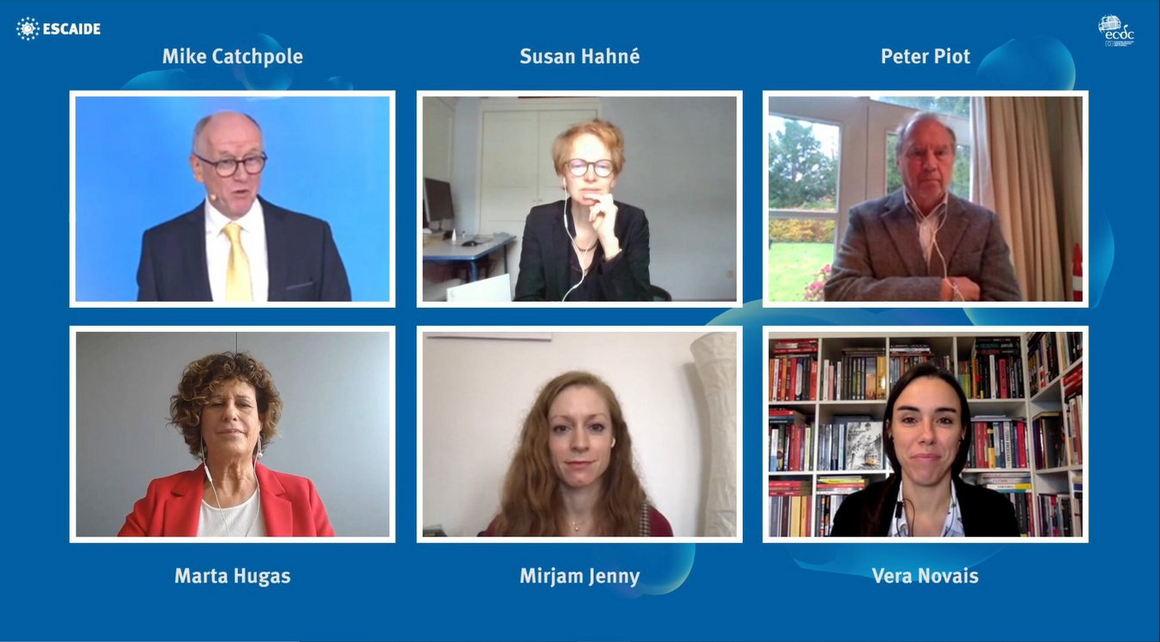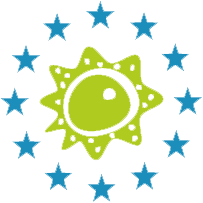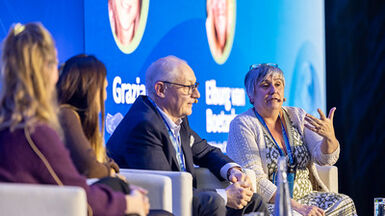ESCAIDE 2021 – a summary of Day 1
View the written summary of the first day of ESCAIDE 2021, covering the main highlights, sessions and plenary.

The almost 3000 registered participants were greeted by the opening remarks of Andrea Ammon, the director of ECDC. She opened ESCAIDE 2021 with her speech emphasizing that the next four days will focus heavily on lessons learned during the COVID-19 pandemic, and also on how these insights can be translated into public health actions that moving forward could enable us to respond with greater speed and effectiveness to the pandemic and to other communicable diseases. The chief scientist of ECDC, Mike Catchpole, followed up the director’s remarks by discussing the aims of ESCAIDE – to share scientific knowledge and experience (with examples of good practice), discuss and debate scientific advances and public health challenges, and to strengthen and expand the human network involved in this field.
"It is now more important than ever to host events like ESCAIDE to share experiences of the COVID-19 pandemic, to talk about the public health challenges and learn from each other" – Andrea Ammon, ECDC Director
The keynote plenary took place right after the opening ceremony, launching straight into discussing one of the greatest challenges faced by the public health community today – communicating science and scientific uncertainty during an evolving pandemic. The session was chaired by Mike Catchpole (ECDC) and Susan Hahné (RIVM), and involved a diverse group of panellists, ranging from eminent public health experts with decades of experience, to a journalist who has been extensively covering the pandemic. The addresses detailing each panellist perspectives on this issue, combined with numerous insightful discussions and reflections prompted by questions from the audience, resulted in several important conclusions being drawn with regards to the roll of scientists in communicating to different key stakeholders, the dangers of the scientific community not taking on this vital role and leaving a vacuum for others to fill, and even some more practical advice on how to phrase communications to get a certain message across.
"In the beginning of the pandemic, experts were too worried about finding the right facts & weren't always available to explain to the audience what was happening. Then others came to explain, e.g. certain “new-born” experts, who were always on the news" – Vera Novais, Journalist, on debunking misinformation in Plenary A
Many sessions today covered COVID-19 field epidemiology and surveillance – one session travelled through different countries and discussed the importance of establishing a case definition for reinfection and the advantages of genomic surveillance, explored analysed surveillance data on disease severity and mortality, zoomed in on transmission among children in school and childcare settings, and closed the circle with an example of evaluating surveillance systems attributes.
Another session illustrated the application of field epidemiology to investigate COVID-19, demonstrating the value of such research in informing policy and actions to limit the spread. A study of COVID-19 in industrial workplaces in Kazakhstan produced clear recommendations that testing symptomatic cases was not sufficient - routine testing and mask wearing is needed to reduce transmission and infection. Similarly, a study in Germany on COVID-19 transmission during choir rehearsals in Germany demonstrated how well-ventilated spaces, short contact time indoors, and mask wearing could reduce spread. These data are particularly interesting considering the varied approaches to mask wearing in EU/EEA member states. A striking point of the session was the enormous sample size in the SIREN prospective cohort study on reinfection of COVID-19 in healthcare workers (HCW) in England. Many questions were posed to the presenter about how they encouraged so many HCWs to participate despite being overwhelmed their role in the COVID-19 response. The study provides valuable insights into reinfection with COVID-19 (another topic that garners misinformation in the general public).
A session on food and waterborne diseases outbreaks consisted of a wide-ranging discussion including on the importance of collaboration between environmental and public health authorities for the investigation of outbreaks of waterborne infections. A presentation on food-borne parasitic infections and how parasites are often overlooked as food-borne infections – laboratories need to improve preparedness for detection of parasites in stool samples. The session also highlighted the challenges in identifying vehicles of infection of foodborne diseases when the suspected food item is commonly consumed, with the example of Salmonella Typhimurium that was traced to tomatoes. Other sessions covered topics including translating research into policy and practice, and emerging and vector-borne diseases. The day concluded with a Q&A session, Career Compass, where high-level speakers from the WHO, ECDC and Erasmus MC gave pointers to junior professionals and researchers on careers in the field.

